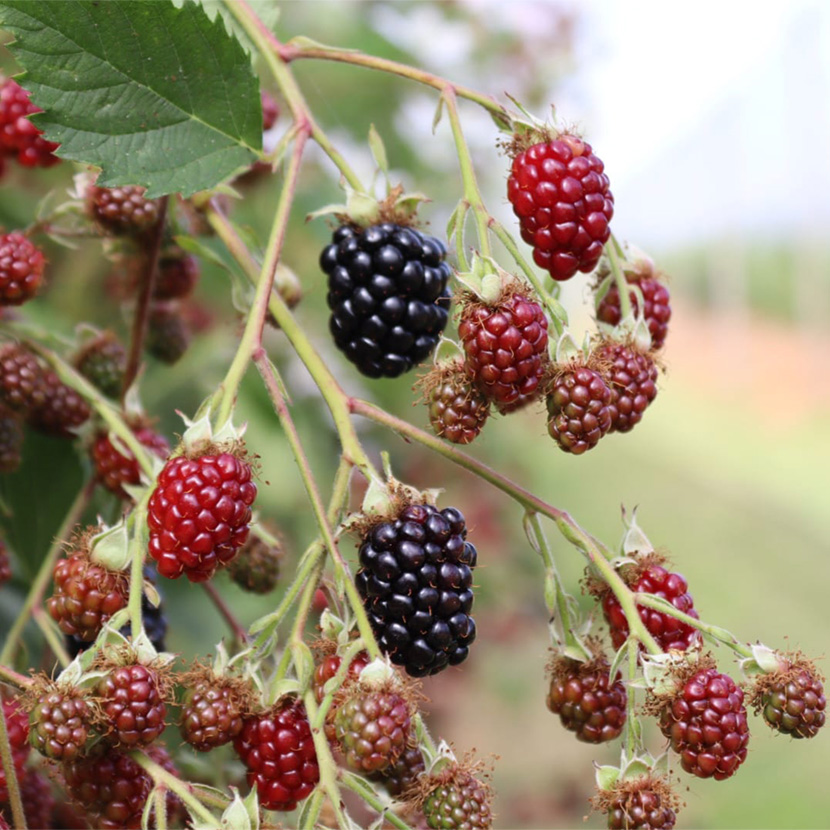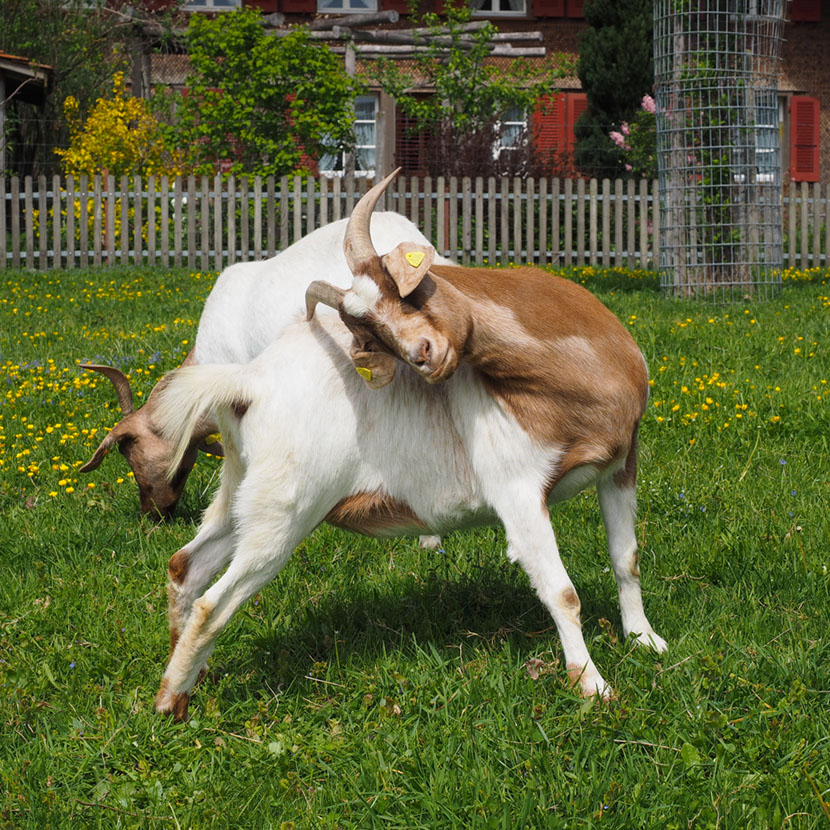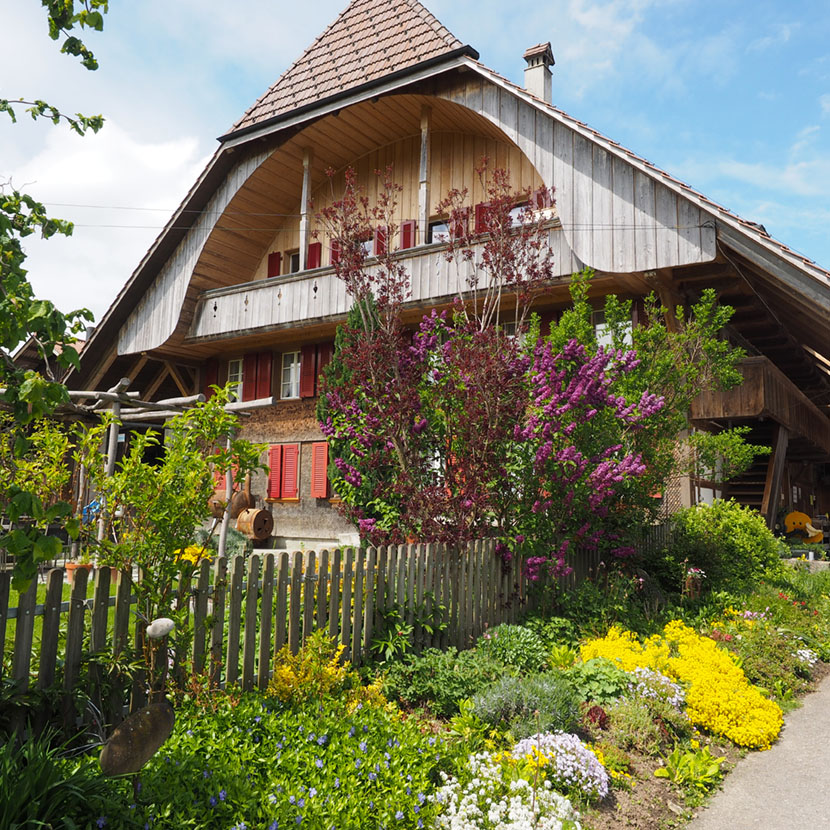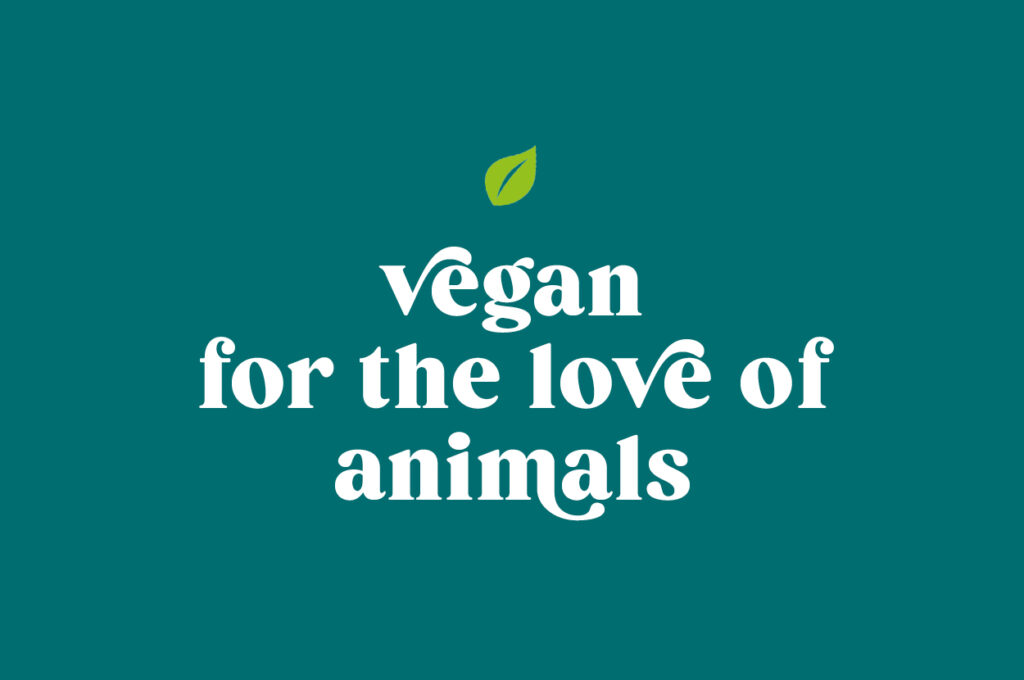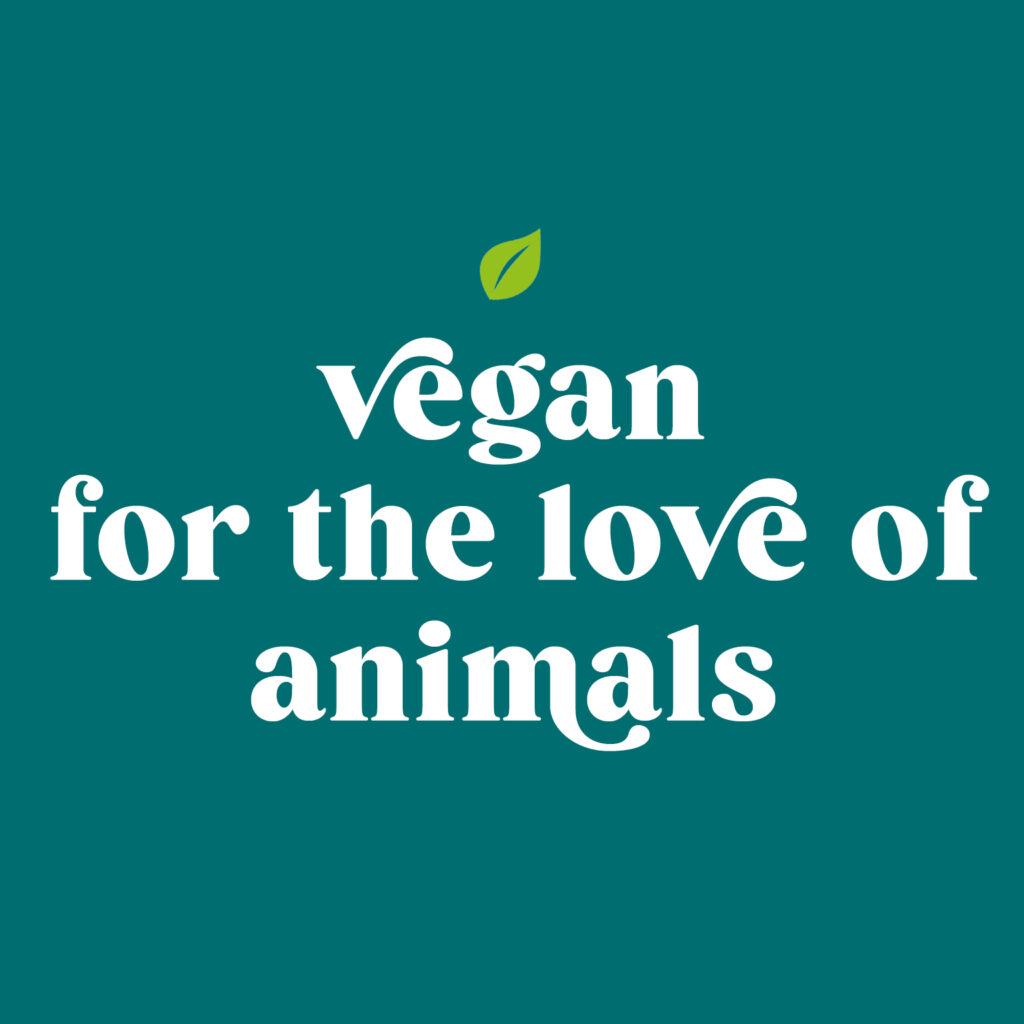V-STORY
The story of the Burrens: a real Swiss animal fairy tale

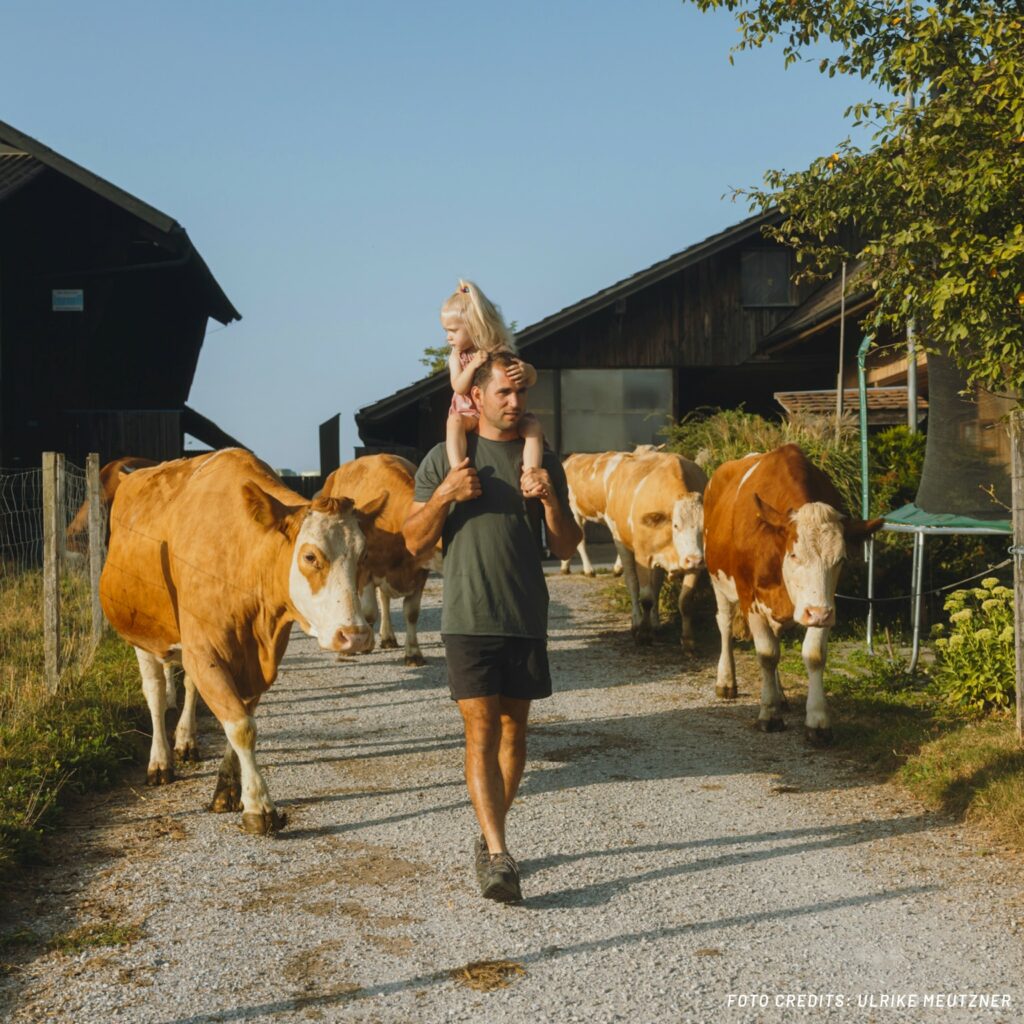
From livestock farm to farm animal sanctuary
For many generations, the Burrens had lived on their farm near Bern, Switzerland, where they kept animals… and slaughtered them. When the son, Tobias, took over, he decided that everything would be different from then on. For the animals, especially. And yet, at first glance, the handsome farm situated idyllically in lush green countryside doesn’t look much different to other farms. We talked to Tobias Burren and learned his story, which sounds a little like a fairytale while nonetheless having become everyday life for him and his wife Christine – with plenty of work and happiness in equal measure. Read on if you like family and animal stories with happy endings!
A turning point for the Swiss farm
Since 2024, the Burrens’ farm in Liebwil, Switzerland, has been a farm animal sanctuary with a farm shop. We wanted to know what life is like on the farm nowadays “for all parties”, and what tasks need to be taken care of.
VELIVERY: How long has the Burren farm been around for, and for how long did livestock farming take place?
Tobias: We don’t know exactly. We’re sure that it was a farm from 1840 onwards. And it’s highly likely that that was when the livestock farming began.
VELIVERY: When did you take over the farm?
Tobias: My wife and I took over my parents’ farm in January 2020.
VELIVERY: When and how did it come about that you decided to stop livestock farming? Did something particular happen?
Tobias: There were many different factors that came together. More and more, we were starting to question the system behind animal products, as it has taken on dimensions that we could no longer be on board with. At the time, we had one child and the second was on the way. As parents, we were better able to empathize with the cows when they were separated from their calves. When we made the decision, we were practising so-called mother-bonded calf-rearing, whereby the calf is allowed to stay with its mother for around 5 months, and to drink her milk. We milked the rest of the milk ourselves. This was alright for a while, but at some point the time still comes for the calf to be separated from its mother and taken to the slaughterhouse. It actually makes things even worse. The mothers would call out for their young day and night for more than a week. When we realized that our animals were living beings with feelings, we knew we had to start doing things differently. We were no longer comfortable making a profit from the deaths of the animals that trusted us day in, day out. It felt like a betrayal. VELIVERY: How did things progress from there, and what has become of the farm today?
Converting the farm step by step
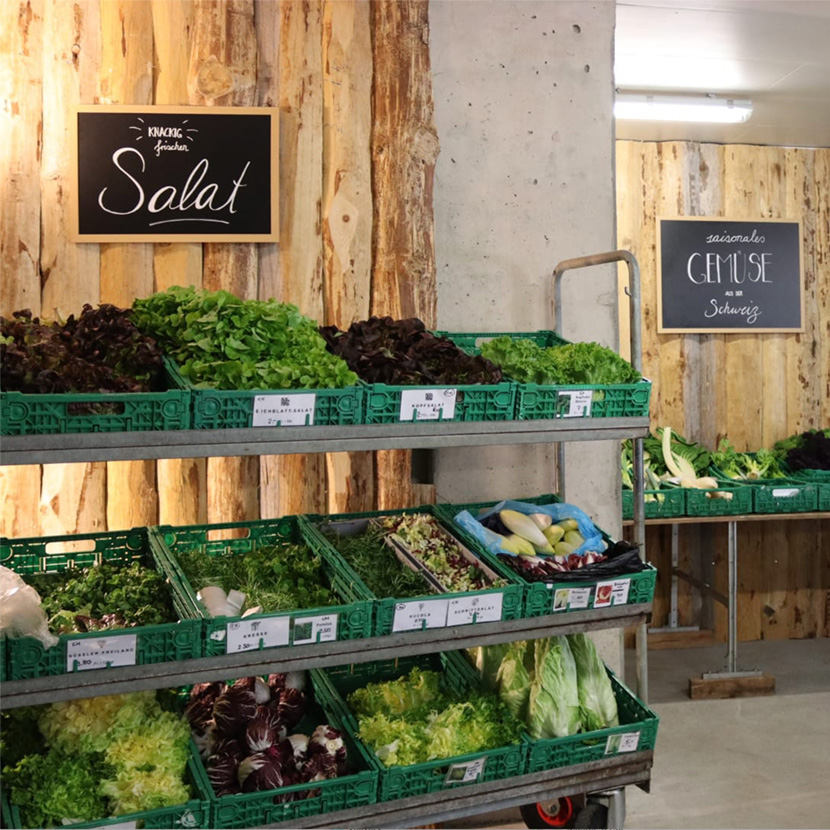
Tobias: We made the decision in mid-2022. From then on, I stopped having cows artificially inseminated. Cows have to continue bearing calves in order to produce milk. Then we told the people closest to us of our plans. At the start of 2023, we sent a brochure to our customers informing them of how what our shop offered was going to change. The change didn’t happen overnight. We had to give plenty of thought to how we should proceed. After all, we weren’t the only ones to be affected – our customers were, too. We had to think carefully about how many animals we would be able to cope with over the coming years. That’s because we want to give them feed we produce ourselves, and we also need enough space in the fields to produce food for human consumption for the farm shop.
So, the transition to a farm animal sanctuary happened one step at a time. The first step was to stop selling meat. Then we stopped selling cheese, and finally – at Easter 2024 – we stopped selling milk and yogurt. To be able to do so, we started growing oats, millet and lentils among other crops, as well as selling processed products such as oat drink, lentil burgers and oat patties in our shop.
VELIVERY: You live with four other generations on the farm. Is everyone on board with the new way of doing things?
Tobias: Not all to the same extent. My father and great grandfather found it difficult, and still don’t understand it even today, but they have more or less accepted it – the positive feedback from customers has helped in that respect.
VELIVERY: Switzerland especially is usually associated with cheese and meat-based cuisine. That’s why we’d be interested to know whether there are lots of farm animal sanctuaries in Switzerland?
Tobias: I don’t know any exact numbers. There are farm animal sanctuaries, but (for the moment) very few have a farm shop like ours.
VELIVERY: Do you follow a vegetarian or vegan diet yourselves?
Tobias: Yes, my wife and I now eat an almost completely vegan diet. When we’re invited for a meal or eating out, we eat at least vegetarian, or vegan as far as possible.
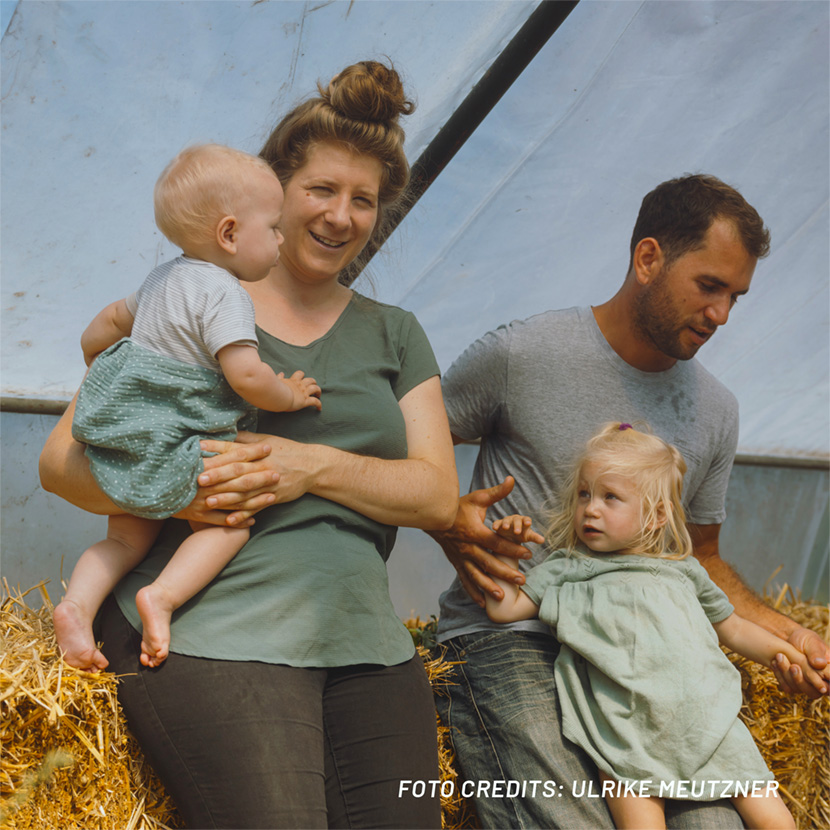
Donkeys Sämi and Lino surrounded by happy cows and hens
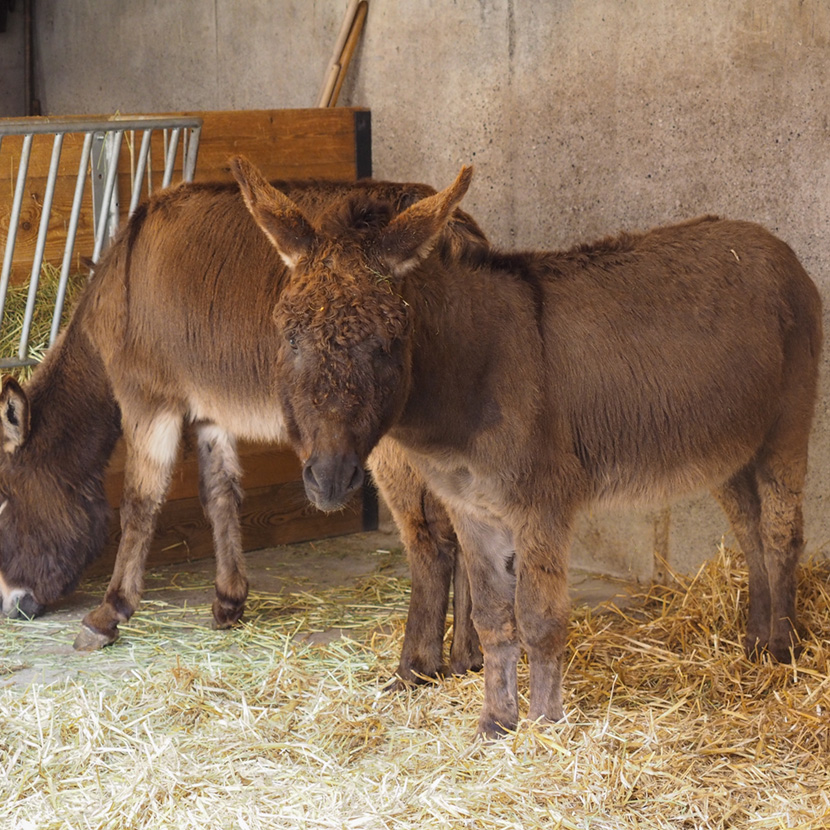
VELIVERY: How many of which types of animals do you have on the farm now, and what is important to you in this regard?
Tobias: Our farm is home to 13 cows, 3 oxen, 3 Mangalica pigs, 6 goats, 180 laying hens, 2 donkeys, 3 rabbits, and 6 cats. It’s important to us that, if possible, we give the animals feed we’ve produced ourselves, and of course that we can provide the resources we need for everyone – whether financially or in terms of staffing.
VELIVERY: We’ve heard that there are “new arrivals”, such as the donkeys Sämi and Lino, and the lovely Mangalica sows Alma, Lou and Pepa. Where do the animals come from, and how do you manage to ensure they settle in?
Tobias: The pigs are from the Emmental Valley in Switzerland. There was no longer any room for them at their farm, so the owner looked for somewhere where they would be kept alive. We wanted to have pigs because we have leftover products like vegetable peelings or wheat bran which are too good to be just thrown away. The donkeys are from my wife’s parents’ farm. They had a lot of space there, but nobody had time to look after them. Donkeys need to be kept busy. And as there are always lots of people on our farm, it suits us down to the ground.
VELIVERY: Do any of the animals in your care have special personalities?
Oskar – the last ox calf to be born on the farm
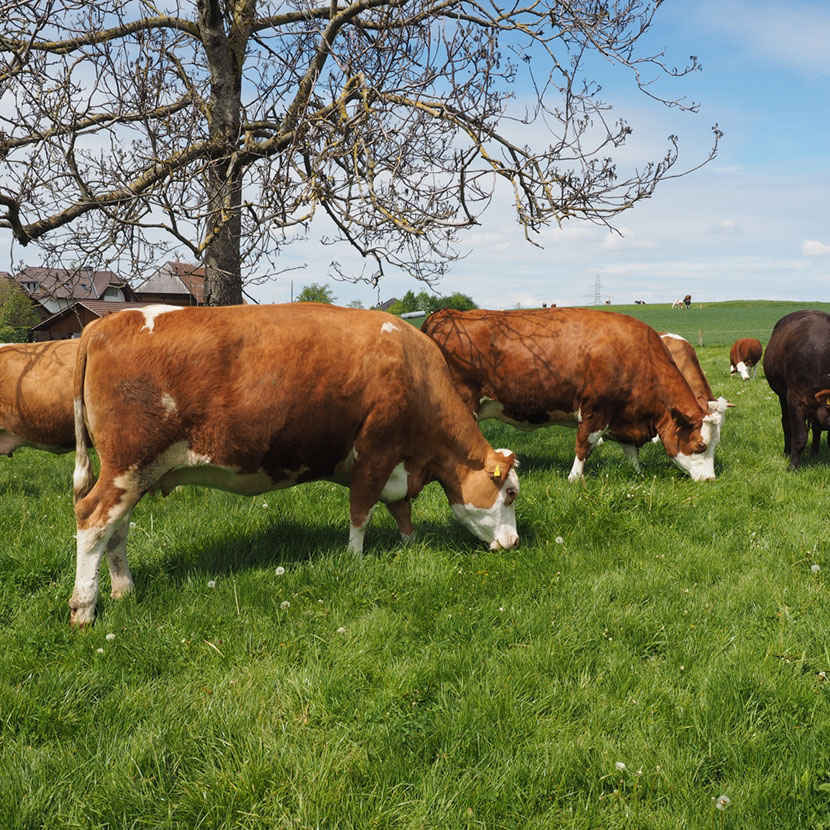
Tobias: Of course – that would be Oskar, our youngest ox. He was born on 25 March 2023 (on our daughter’s birthday). What’s special is that we knew he would be the last calf to be born for a long time. Then there’s Jonny the cockerel, who struts around the farm proudly. Every day, he decides whether he wants to spend his time with the 180 laying hens or the three old hens in front of the house. Of course, he also cock-a-doodle-doos his way all over the farm. Donkeys Lino and Sämi also make themselves very much heard! Their free range pen is almost right next to the farm shop. This way, they can greet the customers and then enjoy being stroked.
VELIVERY: Are there any inter-species friendships?
Tobias: It’s a bit hard to tell for the moment, because we haven’t mixed the animals yet. But maybe we will be able to in future. They certainly greet each other when they see each other.
VELIVERY: What are the animals’ living conditions like?
Tobias: All the animals have generously-sized pens with plenty of straw to lie on. The cows are in the playpen. We no longer have pens for the cows to lie in; instead we have a deep layer of straw. They can decide for themselves what they want to eat – silage or hay. All the animals can go out onto the meadow every day. Some animals need a little more attention (the donkeys, for example), and others less.
But they’re always happy when I spend time with them. Luckily, since we made the change, we have had a lot fewer animals be ill. When there are animals who aren’t feeling too well, we start out by trying natural remedies. At the moment, all of our animals are still relatively young. I think that in a few years’ time, as they start to get older, we’ll be faced with a few more challenges.
VELIVERY: How many team members do you have to take on all the work, and where do you get the knowledge for how to look after the different types of animal?
Arable farming, processing vegetables, baking bread and plenty of other work to do
Tobias: There are currently eleven of us working, of whom six are full-time. But it’s not just about looking after the animals – we also have our own composting system, arable farming, vegetable cultivation, we process our products for the farm shop, and bake bread and plaited loaves in our wood-fired oven. And there needs to be one person taking care of the shop, which is open from Monday to Saturday. It’s important to mention that everything we produce on the farm is sold in our farm shop. It’s a great deal of work.
VELIVERY: We read that you have laying hens on the farm. How is that compatible with the idea of a farm animal sanctuary?
Tobias: Before we made the decision to change approach, we slaughtered the laying hens every January and sold them in our shop. That’s typical when it comes to egg production, because once the hens are more than a year old, their ability to lay deteriorates, as does the quality of the eggshells. The hens on our farm are now in their second year of laying, and they’re allowed to grow old with us. They’re still laying eggs. We sell the good eggs, and use the other ones in other ways. Maybe soon, we’ll start using them as feed. We don’t yet know what we’ll do when the hens die. We have the pen. Will we buy some strong, resilient hens? Or will we rescue laying hens from other farms? The questions we need to ask ourselves are: Are we not then simply supporting egg production indirectly? And laying hens are so overbred – are we really doing them a favor by allowing them to grow so old?
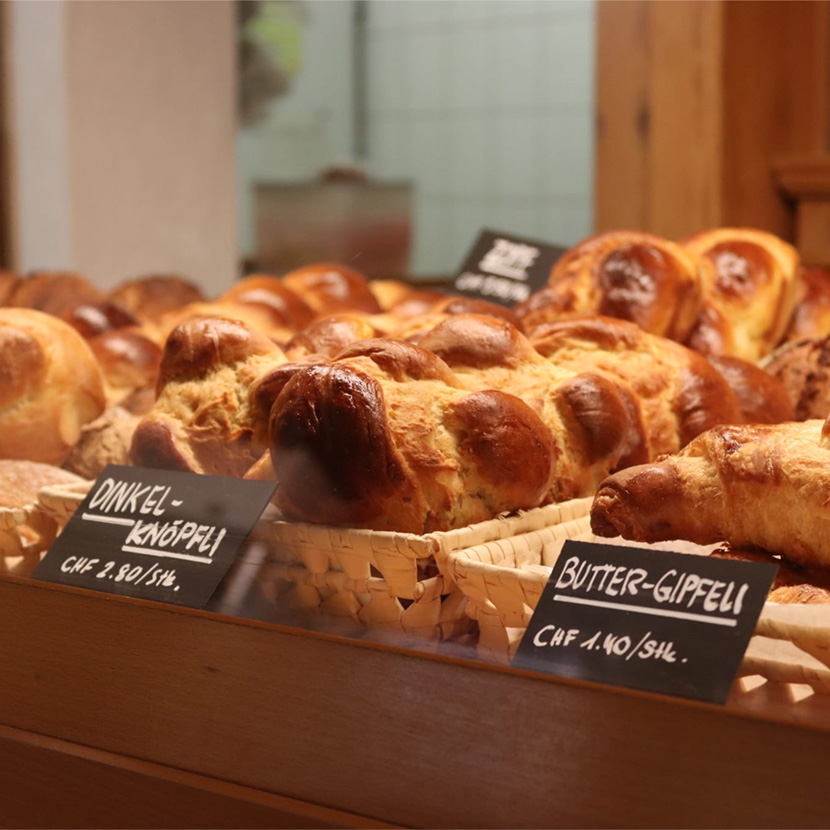
Liebewiler Härzli – an authentic Swiss pasta specialty
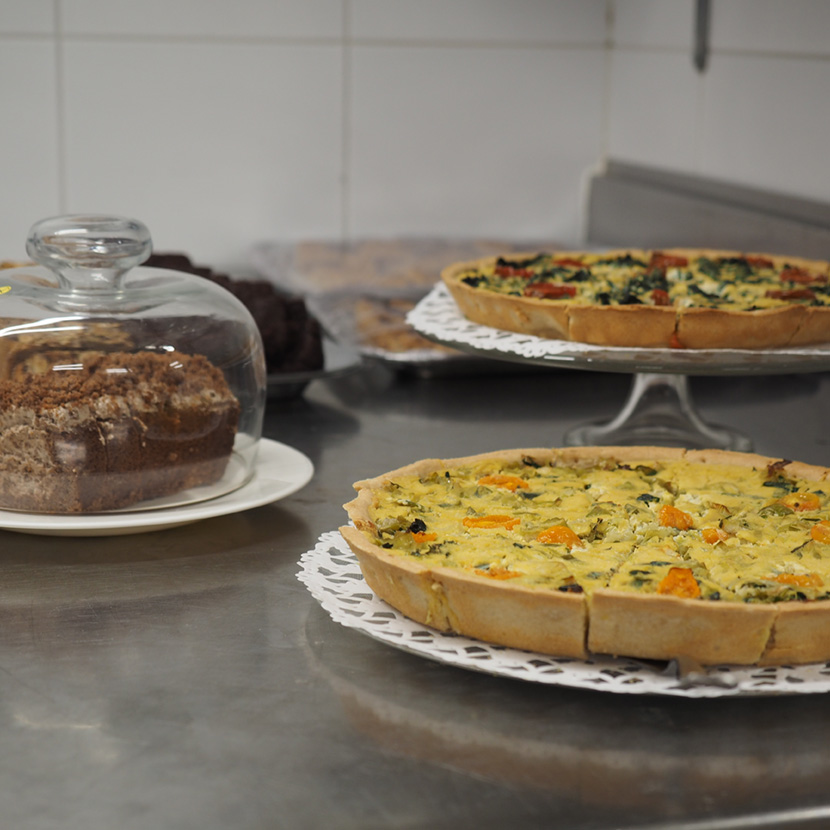
VELIVERY: What specialties do you have on offer in your lovely farm shop, and what are your plans for the future of your range?
Tobias: One specialty are our pasta products. We make them from scratch, and have many different types (flavors and shapes). One type are the Liebewiler Härzli pasta hearts, which make a great gift. In future, we’ll grow more protein-rich crops, such as lentils and beans. We still have plenty of ideas. But we’ll take everything one step at a time.
VELIVERY: How did your customers react to the changes the farm and farm shop have undergone?
Tobias: It’s been very varied. We can summarize it as three different reactions: Most customers think it’s great, and are in the process of rethinking or changing their diets. Some think it’s great, but aren’t going to change their diets. And some think it’s a stupid idea and have no interest in vegetarian or vegan food. But there are only very few who no longer come to our shop at all. After all, we have lots of other great products. At the moment, it’s the season where customers can come to the farm and pick berries themselves. And of course, we have new customers who have been brought in by our new approach.
VELIVERY: Can people come to visit and meet the animals? And how can fans of your work best support you?
Tobias: Yes, of course, any time during our opening hours. You can walk around the farm as you please. On request we can do tours of the farm for people who are especially interested in our approach. You can support us by buying our products, or by adopting an animal. More information on adopting animals is available on our website: https://burehofmaerit.ch/lebenshof/.
VELIVERY: We are very impressed by the changes your farm has undergone, and by the efforts you make for the animals. We wish you every success for the future, and wish everyone on the farm a very happy life!
